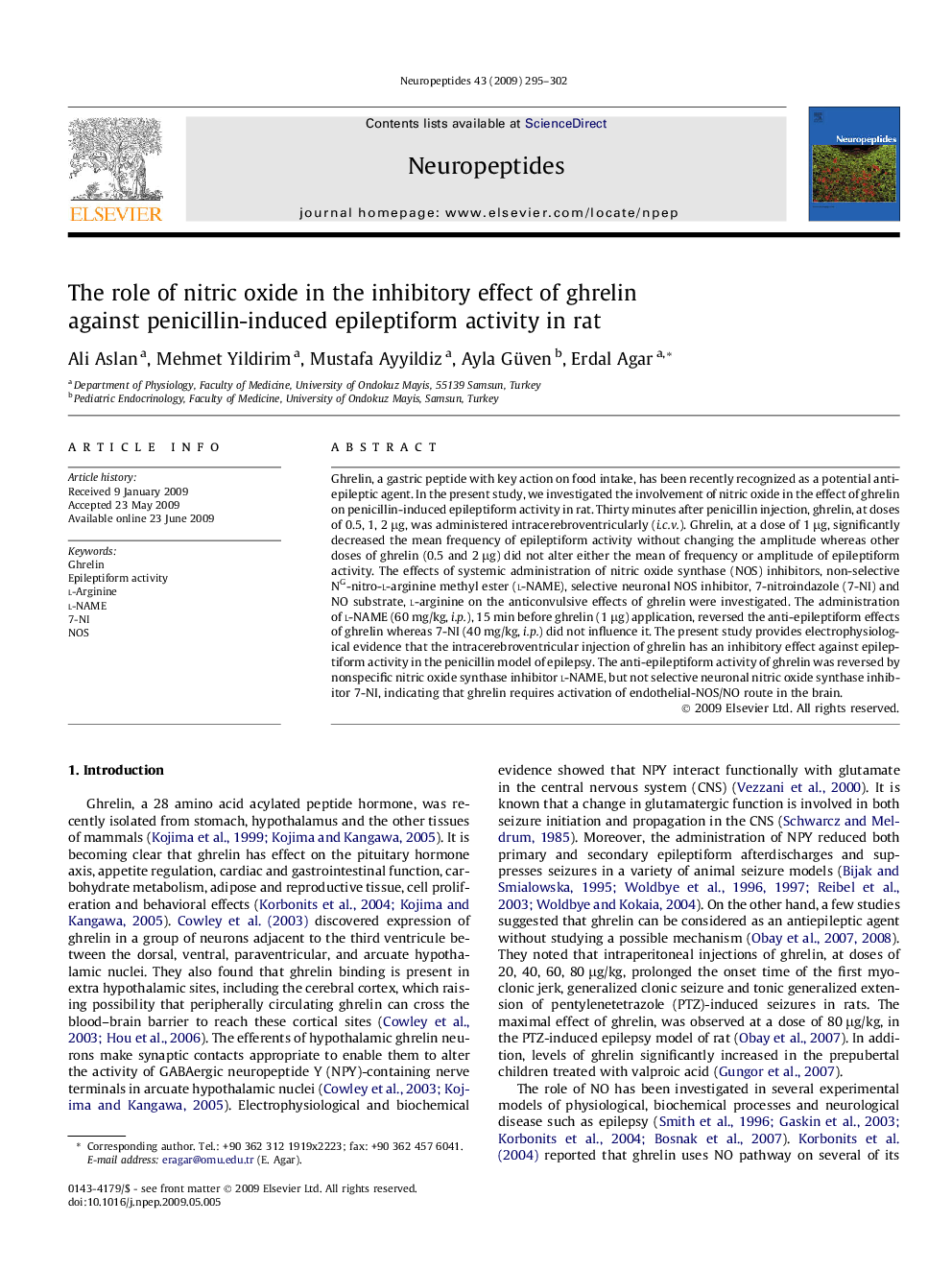| Article ID | Journal | Published Year | Pages | File Type |
|---|---|---|---|---|
| 2808507 | Neuropeptides | 2009 | 8 Pages |
Ghrelin, a gastric peptide with key action on food intake, has been recently recognized as a potential antiepileptic agent. In the present study, we investigated the involvement of nitric oxide in the effect of ghrelin on penicillin-induced epileptiform activity in rat. Thirty minutes after penicillin injection, ghrelin, at doses of 0.5, 1, 2 μg, was administered intracerebroventricularly (i.c.v.). Ghrelin, at a dose of 1 μg, significantly decreased the mean frequency of epileptiform activity without changing the amplitude whereas other doses of ghrelin (0.5 and 2 μg) did not alter either the mean of frequency or amplitude of epileptiform activity. The effects of systemic administration of nitric oxide synthase (NOS) inhibitors, non-selective NG-nitro-l-arginine methyl ester (l-NAME), selective neuronal NOS inhibitor, 7-nitroindazole (7-NI) and NO substrate, l-arginine on the anticonvulsive effects of ghrelin were investigated. The administration of l-NAME (60 mg/kg, i.p.), 15 min before ghrelin (1 μg) application, reversed the anti-epileptiform effects of ghrelin whereas 7-NI (40 mg/kg, i.p.) did not influence it. The present study provides electrophysiological evidence that the intracerebroventricular injection of ghrelin has an inhibitory effect against epileptiform activity in the penicillin model of epilepsy. The anti-epileptiform activity of ghrelin was reversed by nonspecific nitric oxide synthase inhibitor l-NAME, but not selective neuronal nitric oxide synthase inhibitor 7-NI, indicating that ghrelin requires activation of endothelial-NOS/NO route in the brain.
